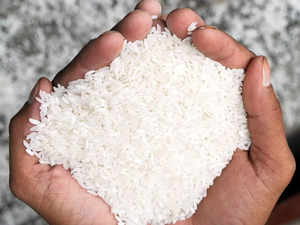
On June 22, Bangladesh came up with a notification that allows imports of non-basmati rice till October 31. This is for the first time that Bangladesh has started importing rice from India so early as there is a fear that India might put a ban on rice exports. Generally, Bangladesh starts importing rice in September-October. There is a shortage of staples in Bangladesh as the Russia-Ukraine war and India's ban on wheat exports have caused the drop in wheat imports, while floods have harmed rice cultivation in the country this year.
"In the last five days, prices of Indian non-basmati rice have risen to $360 per tonne from $350 per tonne in the global markets. This has happened after the news from Bangladesh came in," said BV Krishna Rao, president of Rice Exporters Association.

Rising wheat prices and declining imports have pushed up flour prices in Bangladesh and put pressure on rice. In addition, early floods, storms and heavy rains have hampered rice yields, sparking fears of further volatility in rice prices.
Suraj Agarwal, chief executive officer, Tirupati Agri Trade, said "Prices of rice have already gone up by 10 per cent and are still rising. Bangladesh generally buys rice from West Bengal, Uttar Pradesh and Bihar. In these three states, prices have shot up by 20 per cent for the common variety of rice. The price rise in these three states have also left an impact on prices of rice in other regions where it has gone up by 10 per cent."
Bangladesh imported 13.59 lakh tonnes of rice in FY21. Bangladesh's early buying of non-basmati rice will give a fresh fillip to Indian rice exports. According to the Directorate General of Commercial Intelligence and Statistics data, India had exported non-basmati rice worth USD 6.11 billion in 2021-22 as compared to USD 4.8 billion in FY21.
India, the world's biggest rice consumer after China, has a market share of more than 40% of the global rice trade.
Read More News on
Download The Economic Times News App to get Daily Market Updates & Live Business News.
Subscribe to The Economic Times Prime and read the ET ePaper online.
Read More News on
Download The Economic Times News App to get Daily Market Updates & Live Business News.
Subscribe to The Economic Times Prime and read the ET ePaper online.









 Get Unlimited Access to The Economic Times
Get Unlimited Access to The Economic Times
